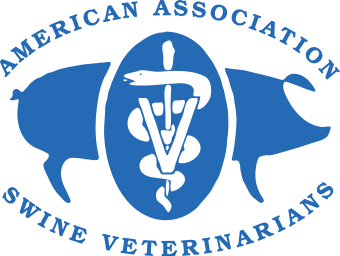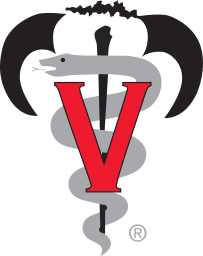Questions have been raised regarding the use of compounded ponazuril, diclazuril, and toltrazuril medications being offered by compounding pharmacies. In some cases, these products are being offered directly to the public.
Ponazuril, diclazuril, and toltrazuril are not approved for food animal use in the United States. Information on drug labels approved by the US Food and Drug Administration Center for Veterinary Medicine (FDA CVM) may be found at Animal Drugs @ FDA.1 On that site, drugs may be searched by proprietary name, established drug name, or by FDA New Animal Drug Application (NADA) approval number or Abbreviated New Animal Drug Application (ANADA) approval number.
The law permits compounding of an animal drug when the source(s) of the active ingredient(s) for compounding is/are the finished FDA-approved drug(s) and not a bulk drug substance. The FDA CVM defines “Bulk Drug Substance” and “Active Pharmaceutical Ingredient” (API) in a footnote in Guidance for Industry (GFI) #256.2
Bulk API may be legally used for production of the FDA- approved product by the approved manufacturer. In this case, the source of the bulk API has been approved and is inspected by the FDA.
The extralabel drug use (ELDU) provisions of the Federal Food, Drug, and Cosmetic Act (FD&C Act) permit the compounding of animal drugs made from FDA-approved animal or human drugs, provided the conditions for legal ELDU use described in the FD&C Act and FDA’s ELDU regulations are met.3,4 The use of a drug compounded from bulk API is not permitted in any food animal under the Animal Medicinal Drug Use Clarification Act (AMDUCA) regulations, except in the case of specific antidotes as noted in FDA CVM GFI #256 and listed on FDA’s website.2,5 Therefore, when compounded from bulk API, ponazuril, diclazuril, and toltrazuril products are specifically prohibited for use in food animals.
Compound-specific discussions
Ponazuril
There is an FDA-approved equine ponazuril paste labeled for the treatment of equine protozoal myeloencephalitis (NADA No. 141-188). This drug is not prohibited for food animal use in the United States and is therefore, able to be considered for ELDU within a valid Veterinary-Client-Patient relationship (VCPR) under the AMDUCA regulations.6
Compounding using the FDA-approved ponazuril product may be considered under the AMDUCA regulations by a veterinarian within a VCPR. The use of compounded ponazuril originating from bulk API in food animals is illegal under any circumstances.
Diclazuril
There is an equine diclazuril oral pellet approved for the treatment of equine protozoal myeloencephalitis (NADA No. 141-268) and a medicated feed for broiler chickens and growing turkeys approved for prevention of coccidiosis (NADA No. 140-951). The equine oral pellet is an alfalfa-based pellet designed for administration by adding to the feed of horses. Under 21 CFR §530.11, the ELDU of an approved new animal drug or human drug in or on an animal feed is an ELDU that is not permitted and results in the drug being deemed unsafe.7 Similarly, any ELDU of the chicken and turkey medicated feed is strictly prohibited in food animals. The use of compounded diclazuril originating from a bulk API in food animals is illegal under any circumstances.
Toltrazuril
There is no FDA-approved toltrazuril product in the United States. Therefore, toltrazuril is illegal to use in food animals in the United States in any form.
These drugs may be approved for food animal use in other countries. However, drugs approved in other jurisdictions may not be legally imported and used in food animals in the United States, regardless of their labels in other countries.
Guidance on compounding from bulk drugs should be sought from FDA CVM GFI #256.2 The FDA CVM may be contacted with questions at AskCVM@fda.hhs.gov.
The AASV continues to advocate for swine veterinarians and animal health and work with FDA to find solutions. If you are experiencing drug supply issues, please send any animal drug shortage information to the FDA Animal Drug Shortages mailbox (animaldrugshortages@fda.hhs.gov) or call FDA at 240-762-8893. This will facilitate FDA drug shortage staff getting access to all information more expeditiously. You can also reach out to AASV, and we will submit on your behalf.

American Association of Swine Veterinarians Pharmaceutical Issues Committee

American Association of Bovine Practitioners Committee on Pharmaceutical and Biologic Issues
References
1. FDA Center for Veterinary Medicine. Animal Drugs @ FDA. US Food and Drug Administration. Accessed September 8, 2022. https://animaldrugsatfda.fda.gov/adafda/views/#/search
2. FDA Center for Veterinary Medicine. CVM GFI #256 - Compounding Animal Drugs from Bulk Drug Substances. Updated August 10, 2022. Accessed September 8, 2022. https://www.fda.gov/regulatory-information/search-fda-guidance-documents/cvm-gfi-256-compounding-animal-drugs-bulk-drug-substances
3. Federal Food, Drug, and Cosmetics Act, New animal drugs. 21 USC §360b. Accessed September 8, 2022. https://www.govinfo.gov/content/pkg/USCODE-2010-title21/html/USCODE-2010-title21-chap9-subchapV-partA-sec360b.htm
4. Extralabel drug use in animals. 21 CFR §530.
5. FDA Center for Veterinary Medicine. List of bulk drug substances for compounding drugs for use in food-producing animals or free-ranging wildlife species. Updated April 13, 2022. Accessed September 8, 2022. https://www.fda.gov/animal-veterinary/animal-drug-compounding/list-bulk-drug-substances-compounding-drugs-use-food-producing-animals-or-free-ranging-wildlife
6. Final Rule - Extralabel Drug Use in Animals. Fed Regist. 1996;61(217):57732-57746.
7. Rules and provisions for extralabel uses of drugs in animals, Limitations. 21 CFR §530.11. https://www.accessdata.fda.gov/scripts/cdrh/cfdocs/cfcfr/CFRSearch.cfm?fr=530.11
